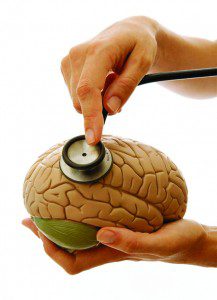

Mental illnesses are as real as diseases like heart disease or cancer. But understanding that mental illness isn’t a weakness or a character flaw helps people get help.
Some of the more common mental health problems include:
• Depression
• Anxiety and panic disorders
• Post-traumatic stress disorder
• Bipolar disorder
• Attention-deficit/hyperactivity disorder
• Substance abuse
Mental health problems may be passed down through the family. Or they can arise from abnormal brain chemistry, substance abuse, or in response to traumatic events or an abusive environment. In other words, a mental illness isn’t the fault of the person who’s suffering.
Learning symptoms of mental illness can help you recognize when you or a loved one need help. Symptoms include:
Feeling sad, burned out, or useless. Everyone feels down from time to time. But, if that emotion continues for more than 2 weeks and you also have feelings of guilt and hopelessness, it could mean you’re depressed. Severe and persistent symptoms are what distinguish depression from normal sadness and mood changes. Other symptoms of depression are sleep problems, loss of self-esteem, and not enjoying things you once did.
Ongoing worries and fears. People who suffer with unrealistic or extreme anxiety and worry about life circumstances could have an anxiety disorder.
Sudden, intense angst, fear, or panic. Heart palpitations, chest pain, feeling smothered, dizziness, trembling, and faintness can be signs of panic disorder.
Unexplained physical symptoms. Ongoing physical symptoms, such as headaches, stomachaches, and chronic pain (especially backaches) with no clear cause, can signal emotional upset or stress overload.
Chronic fatigue and lack of energy. When your body can’t handle emotional overload, it can shut down. Feeling too tired to do the things you used to love can be a sign of emotional distress or depression.
Avoiding other people. Spending all your time alone instead of with friends or family could be a sign of stress overload or a social phobia.
Other symptoms of mental health problems include: ongoing nightmares, flashbacks, dramatic changes in sleep or weight, and substance abuse, including alcohol.
Finding the Help You Need
People who have emotional disorders don’t have to suffer without help. It’s possible to mend the mind through therapies and support services. Don’t be afraid to ask for help. It’s a sign of strength, not weakness.
When your life spins out of control, asking for help is a sign of strength, not weakness.
The American Psychological Association recommends you seek the help of a trained mental health professional if:
• You constantly worry.
• You feel trapped.
• You aren’t getting any better with self-help.
• You feel as if you can’t handle things alone.
• Your feelings are affecting your job, relationships, or sleep or eating habits.
Other reasons to seek help: Someone who knows you well suggests that you go to counseling or you have an untreated problem with substance abuse.
These are only some of the symptoms that may warrant seeking help. You may have others that concern you.
The first person to consult may be your family health care provider to find out if your symptoms may be caused by medical conditions. If a medical condition is not the cause, your provider may be able to suggest a mental health professional.
Before establishing a relationship with any mental health professional, make certain the person has training and experience in your area of concern, whether that is alcohol, depression, gambling, domestic violence, family therapy, or marriage counseling.
Bayfront Health offers comprehensive behavior health care for adults, including diagnostic evaluation, crisis stabilization and treatment.
The ability to provide excellent care to our patients—who often have highly complex illnesses—is possible only with the quality of service and commitment to care of our entire clinical team. Our core of specialized psychiatric nurses, therapists, technicians and social workers is vital to around-the-clock treatment of the whole person as they strive for stability.
For more information about behavioral health services offered at Bayfront Health Medical Group, visit BayfrontHealthMedGroup.com or call 941-833-1750.
 Southwest Florida's Health and Wellness Magazine Health and Wellness Articles
Southwest Florida's Health and Wellness Magazine Health and Wellness Articles

